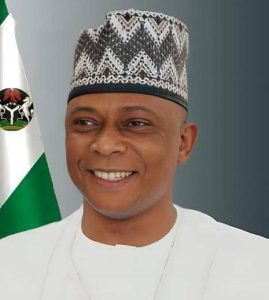Saraki advocates practical education for Africa
Nigeria’s President of the Senate, Abubakar Bukola Saraki has urged African leaders to shift emphasis from the current theoretical system of knowledge sharing in her education system to practical skills based approach in order to radically turn around the fortunes of the continent.
Saraki made the call while delivering a keynote address at the 2018 Georgetown Africa Business Conference in Washington DC, United States of America.
The conference was hosted by the Georgetown’s McDonough School of Business in conjunction with the Walsh School of Foreign Service’s African Studies Programme.
In a statement issued by by his Chef Press Secretary, Sanni Onogu, Saraki said that the much talked about rapid industrialization of the continent will remain a mirage if her leaders fail to adopt modern trends in vocational and technical education.
He stated that, even though Africa is blessed with a large youth population, the continent cannot benefit without making them useful, innovative and productive.
Speaking on the topic: “The African Value Chain: Harnessing Local Talent and Opportunity,” Saraki said: “African governments must provide an enabling environment for the nurturing of raw talent. Our education system ought to move away from a theory based approach and paper certification to inculcating practical skills that support apprenticeship and boosts innovation and industry.
“This is the place of Vocational and Technical education which provides that the youth inculcate practical skills that will not only make them employable but will also help the continent in building an army of job providers,” he said.
He made a passionate appeal for quality higher education and the creation of the right conditions and opportunities for entrepreneurship and employment in both Nigeria and Africa – while urging the world to take note that truly, Africa has come of age.
“All these would challenge us to plan and implement far reaching reform, especially in the higher education sub-sector, so as to ensure that our youths are market ready in the entire value chain of identified economic drivers; agriculture, construction, ICT, entertainment, sports and fashion industries,” he said.
He noted that while Africa was presently home to about 1.3 billion people and her population is expected to double by 2050, it is well endowed with a large youth population which means a huge market in terms of consumption, services and labor.
He added: “However, for Africa to benefit from the demographic dividends that a massive youth population offers, we must make the right investments in quality higher education and create the right conditions and opportunities for entrepreneurship and employment. No African country can do this alone.
“A large market is only useful when the people have the necessary purchasing power; and a huge population is only an asset when it is productive. My country, Nigeria, is already a population powerhouse, the largest in Africa and the seventh in the world,” he said.





